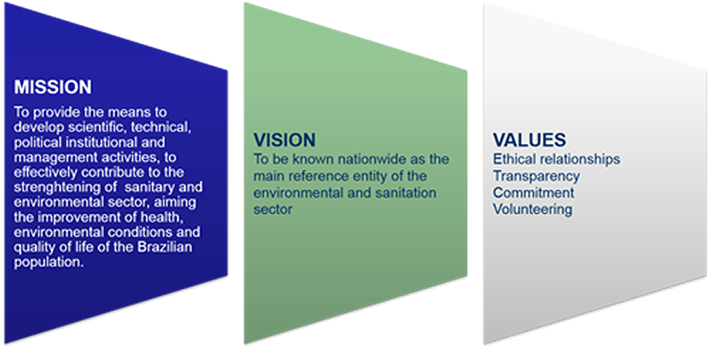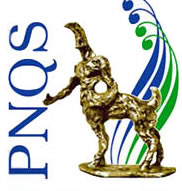One of ABES’s overriding goals is to train and provide capacity-building so that competent staff may tackle environmental and sanitary engineering procedures and systems, in accordance with the needs of the country and drawing on the best international knowledge and technology.
Its first challenge, as has already been mentioned, was the organization of the Basic Sanitation Training Program for BNH, which ran for 10 years (from 1972 to 1982). The proposal was to provide technical training to 139 thousand employees bearing a high school degree and hailing from basic sanitation state companies. The diagnosis went beyond the target audience: At all stages, there was a perceived dearth of human resources with the necessary skills to operate sanitation services.
In 1973, ABES also took part in the opening of the Agents’ Training Preparation Course for Basic Sanitation Companies. An important role was attributed in the agreement to the National Staff Development Center for Professional Training (CENAFOR). The task of the latter was to establish training agents inside basic sanitation state companies, starting with their directors. Also through the Intensive Workforce Preparation Program (PIPMO), linked to the Compensatory Education Department of the Ministry of Education, ABES and BNH provided training to all basic sanitation state companies, prioritizing qualified and semi-qualified operatives as well as workers in general. Indeed, these training programs had never been envisioned through such a decentralized lens.
It is estimated that, throughout the period of operation of the BNH, more than 140 thousand employees from sanitation state companies took part in such training courses. This figure includes beneficiaries from programs geared to horizontal knowledge transfer. ABES was the entity that boosted such a technology transfer process among companies. It consisted of the selection of prominent activity sectors inside the companies. After a pilot plan had been designed, the benchmark company was supposed to share its experience and knowledge with other companies. Besides pilot plans, traditional companies that shared their technology also provided technical internship programs and training subsidized by BNH. ABES went on carrying out institutional development projects in an interconnected and sequential manner. Over the years in which BNH was in operation, several regional seminars were convened, attended by directors and professionals from state sanitation companies.
At the present time, the sanitation sector relies on a number of high-caliber professionals and qualified technical staff to meet all the requirements in every area, in tandem with the participation of ABES.
The current challenge is to improve the efficiency of the managerial models employed by sanitation companies. Many companies have started using renowned programs in their management, like Qualidade Total (“Total Quality”). With its penchant for studies, research, knowledge gathering, and training, ABES has attempted to act on in consonance with the day-to-day practices of such companies. The National Sanitation Quality Prize (PNQS) is the capstone of a long and committed trajectory stressing staff training and capacity-building.

 Benchmarking – the process of identifying and learning from good practices in other organisations – is a powerful tool in the quest for continuous improvement and performance breakthroughs.
Benchmarking – the process of identifying and learning from good practices in other organisations – is a powerful tool in the quest for continuous improvement and performance breakthroughs.
PNQS targets business management systems. A set of management processes, logically interrelated, are used in order to manage the organization and generate results.
• Stimulate the search for and application of good management practices;
• Foster management training events.
PNQS has a strong methodology to boost learning and cultural changes in the sanitation business.